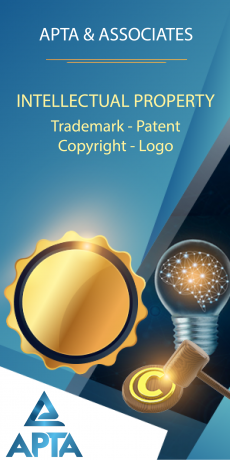According to the regulations on patent in Vietnam, the official language used in examination of patent application is Vietnamese, however, Patent Examiners will have favorable look upon the English specifications as a reference, in any case, English specification is recommended, if available.
Recently, several Patent Examiners of Vietnam Patent Office (NOIP) even propose the submission of English specifications as a reference to grant Patent Certificate, if any.
Therefore, it is recommended to provide with English translation of the specification when filing patent in Vietnam, if available.
In accordance with the Circular No. 16/2016/TT-BKHCN issued by Ministry of Science & Technology on November 14, 2016; came into effect since January 15, 2018, the official Government’s fees for patent, design and trademark in Vietnam increased. The main changes on the fee of patent in Vietnam in Circular No. 263 as below:
+ The occurrence of annual Certificate usage fee, which requested to pay along with maintenance fee (previously, not counted);
+ Additional fee for substance examination from the 7th page of the Patent Specifications (previously, only counted by the number of independent claims)
Publication fee for the whole Patent specifications has been ratified but not yet applied at the moment because the facilities of Vietnam Patent Office (NOIP) have not yet met the requirements for publishing the large data yet (previously, publish the bibliography (1 page & 1 figure only).
No. Although Vietnam is not yet an official member of the Nice Agreement, it has long been using the International Classification of Goods/Services under the Nice Agreement for the purpose of trademark registration in Vietnam.
From October 1, 2017, the Vietnamese version of the Nice Classification 11th Edition, translated by the National Office of Intellectual Property (NOIP) from the English version published by WIPO, be applied to the classification of goods and services for trademark registration in Vietnam. Accordingly, if an applicant, at the time of filing trademark in Vietnam, fails to properly classify the designated goods/services according to the new Vietnamese edition, the National Office of Intellectual Property (NOIP) shall proceed with re-classification during examination process and the trademark applicant must pay additional fees for classification.
In accordance with the Circular No. 263/2016/TT-BTC issued by the Ministry of Finance on November 14, 2016; came into effect since January 01, 2017, the official Government’s fees for patent, design and trademark in Vietnam increased. The main changes on the fee of trademark in Vietnam in Circular No. 263 as below:
+ The occurrence of Trademark usage fee which calculated based on the number of class(es) under that Trademark Certificate, requested to pay at the time of trademark renewal every 10 years (previously, not counted);
+ The fee of trademark opposition in Vietnam will be calculated based on the number of class(es) under the opposed trademark, instead of number of application as before.
+ The appeal fee will be calculated based on number of class(es), goods & services that exceed the 6th in a class, instead of number of application as before. It can be viewed as a volume of works that a Trademark examiner needs to perform when re-examines in appeal process. However, this calculation has not been applied yet due to some inadequacies may arise in reality. Thus, at the moment, the National Office of Intellectual Property (NOIP) will not collect appeal fee at the filing stage, a specific Notice on necessary fees will be issued separately.
The first, the frequent formal and procedural mistakes when licensing trademark in Vietnam can be listed as:
– Licensing without checking the legal status of the licensing trademark in Vietnam. For example:
. Whether the licensing trademark is valid protection in Vietnam or not?
. In case of signing a secondary trademark licensing agreement, whether the Licensor Party in that secondary Licensing Agreement is permitted by the Licensor Party in the base trademark licensing agreement or not?
– Signing the trademark licensing agreement before the establishment of rights of trademark in Vietnam.
– In order to licensing an IP object in general, as well as in particular a trademark in Vietnam, such object must be already protected in Vietnam, i.e. it has been granted protection title. Those IP objects not yet registered in Vietnam cannot be licensed.
– The Agreement of trademark licensing in Vietnam missing the stamps and/or signatures adjoining all the pages in the Agreement of both Licensor Party and Licensee Party.
– Another point, the Agreement of trademark licensing in Vietnam is not registered with the National Office of Intellectual Property (NOIP), therefore, it will be not valid to the third-party. According to Article 148.2 of Vietnam IP Law 2005: “an industrial property object license contract shall be valid as agreed upon by the involved parties but shall be legally effective to a third party upon registration with the state management agency in charge of industrial property rights”.
The second, the frequent substantive mistakes when licensing trademark in Vietnam can be listed as:
– The licensing contents (such as time duration, territorial scope…) are in excess of the base Trademark Licensing Agreement;
– Missing a clause that defining the obligation to record indications on goods or packaging that such goods are manufactured under a Agreement of trademark Licensing in Vietnam (According to Article 142.4 of Vietnam IP Law 2005).
